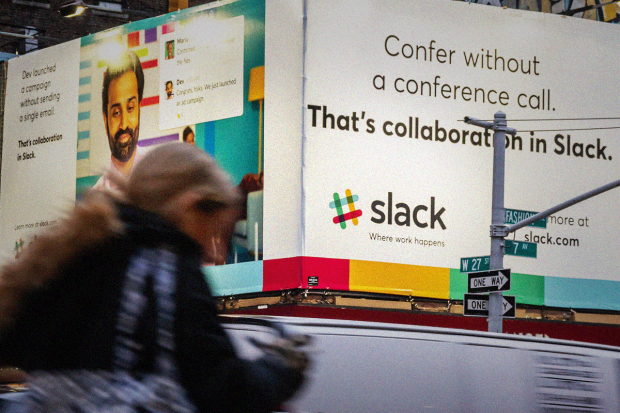For the millions who continue to work from home, Slack (WORK) has become the equivalent of talking to colleagues at the water cooler — those extra moments you spend chatting with colleagues add some color to what is otherwise what is often a very solitary existence in front of the computer.
In some ways, in the remote work world, Slack has become the work part of our social lives. Many companies have even added channels to talk about non-work topics, as a way for people to fill in the void caused by offices being closed.
The same goes for Peloton (PTON) as the exercise bike company's standout feature is the ability to join live classes wth instructors. Users can also chat with instructors, fellow class members and friends who are also using the app.
Why Was Everything Down At Once?
Both Slack and Peloton faced recent outages — when workers logged in on Tuesday, Feb. 22 many reported slow loading times and difficulties sending messages to colleagues. The company acknowledged that "some customer[s] may be experiencing issues with loading Slack" and it was looking into the situation. By mid-afternoon, the issue appeared to be largely resolved.
At around the same time, Peloton users also reported having difficulty accessing logins, classes and leaderboards on their bikes and treadmills. In a Twitter (TWTR) post, the company said that the outage and its attempts to resolve it could "impact [one's] ability to take classes or access pages on the web."
While the issue was resolved quickly, Peloton shares slipped by more than 4% amid the outage. The outage also prompted a wave of Twitter complaints at what is already a turbulent time for the company.

Do We Rely On These Apps For Our Social Life? (Kind Of.)
But business considerations aside, such a widespread outage could also take an emotional toll — when one does not have a physical office, those little moments on Slack can replace the day-to-day chitchat that more than one social psychologist said is necessary for maintaining mental and emotional health.
"Work is where many people have the bulk of their social interactions," Harvard social scientist Arthur C. Brooks wrote at the start of the pandemic. "In a recent survey, 70 percent of employees said friendship at their job is the most important element of a happy work life."
While an hour-long outage will not uproot one's social life, the fact remains that millions who work remotely are still relying on these apps not just for work but also for socialization. Between a pandemic that has dragged on for longer than anybody had once anticipated and rising rates of loneliness in the West in general, an inability to have even a brief chat with colleagues could have effects that are more far-reaching than first appeared.
"Lockdown has not so much redrawn the workplace of millions as it has chewed it up like a broken printer," Simon Usborne wrote for The Guardian. "Working from home, a mode traditionally viewed with suspicion by bosses and with envy by commuting bureausceptics has become the norm for those whose livings are tied to computer screens."







